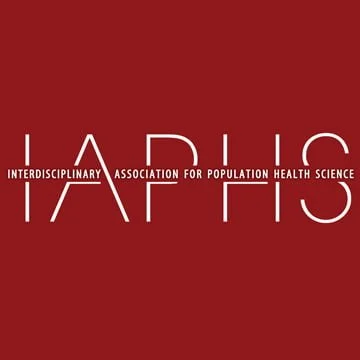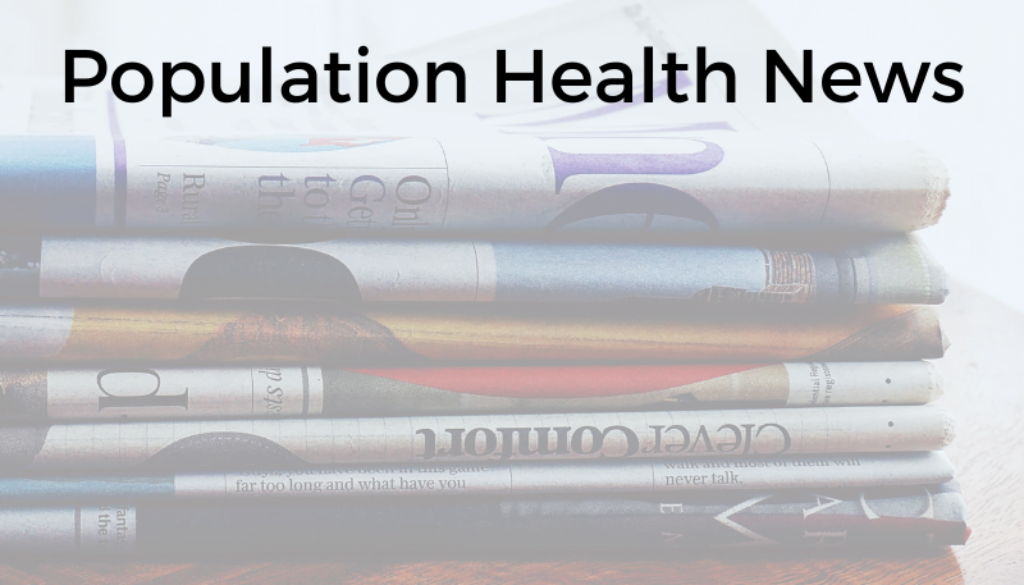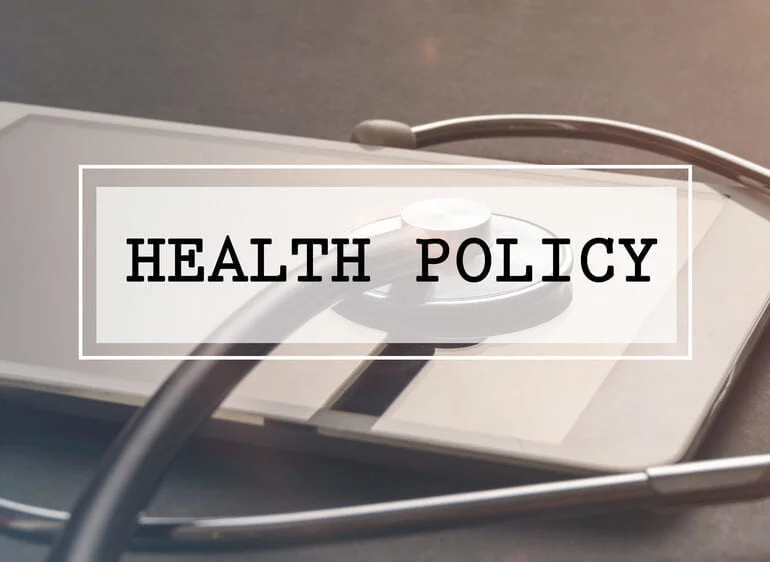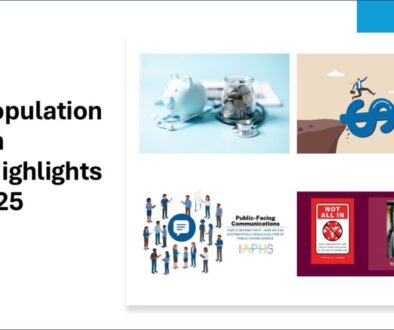Population Health News Round-Up: July 2024
JoAnne DyerIAPHS Members in the News

Alison Gemmill and Claire Margerison in JAMA Pediatrics: “This study found that Texas’ 2021 ban on abortion in early pregnancy was associated with unexpected increases in infant and neonatal deaths in Texas between 2021 and 2022. Congenital anomalies, which are the leading cause of infant death, also increased in Texas but not the rest of the US.” (June 24, 2024)
Douglas A. Wolf in The Milbank Quarterly: “Paid leave policies have heterogeneous impacts on personal care provision, potentially owing to differences in program features, variation in caregiving needs, and respondent characteristics. Overall, the results indicate that offering paid sick leave and paid family leave, when combined with job protection, could support potential family caregivers.” (June 26, 2024)
Rita Hamad on difference-in-differences methods in Epidemiology: “Last, we present results from a simulation study that compares the performance of several DiD estimators under different scenarios to enhance understanding and application of these methods.” (July 5, 2024)
Anna Hing was part of an expert panel discussion with the American Public Health Association. The topic: “Exploring voting rights as political determinants of health.” (July 12, 2024; video available)
Benjamin Walker in the Journal of Pediatric Psychology: “Overall, findings suggest that clinical providers and parents may wish to prioritize improved sleep duration in the management of OW/OB risk in youth with ADHD.” (from the abstract; May 2024)
Health Equity and Disparities
Poor diet, food insecurity are still contributing to health disparities: While diet quality improved between 1999 and 2020 in the U.S., disparities in diet “persist or are worsening.” (Annals of Internal Medicine, June 18, 2024)
American Cancer Society launches VOICES of Black Women: The study aims to discover what’s behind inequities in Black women’s survival rates from cancer, particularly breast, cervical, and endometrial cancers. (NBC News, May 7, 2024)
New HIV diagnoses are disproportionately impacting gay Latino men: Advocates are seeking a public health emergency declaration to send more money to Latino communities to help. (KFF Health News, June 24, 2024)
Environmental Health and Justice
The oldest Black town in America is suffering from climate change: Princeville, North Carolina, was founded by former slaves. Now, residents are facing flooding and hurricanes—and hard decisions about their future. (Grist, July 10, 2024)
The Quinault Nation faces a rapidly rising Pacific Ocean: In Washington State, one tribe is trying to survive by relocating residents and buildings, but funds are short. Many other tribes in the U.S. are also facing severe impacts from climate change with few ways to respond. (AP News, July 12, 2024)
Proximity to oil and gas development (OGD) linked to poorer mental health: “Among North American pregnancy planners, closer proximity to OGD was associated with adverse preconception mental health symptomatology.” (AJPH, May 17, 2024)
Built Environments, Spaces, and Places
The U.S. has failed public health, particularly in rural areas: In this commentary, the authors call for “designing policies and practices that account for rural disadvantage” to help solve rural health disparities. (Health Affairs, June 2024)
Hospitals across America are closing labor and delivery units: Declining birth rates, financial losses, and challenges in providing staff are cited as causes. “More than half of rural U.S. hospitals” do not have labor and delivery services. (KFF Health News, July 15, 2024)
Policy and Programs
Post-Dobbs, the sterilization rate has increased for men and women: The authors found “an abrupt increase in permanent contraception procedures among adults aged 18 to 30 years following Dobbs,” the US Supreme Court ruling which signaled the end of Roe vs. Wade abortion protections. The increase was double for female patients. (JAMA Health Forum, April 12, 2024)
How the latest Supreme Court decision could affect homelessness: Now that cities can ban sleeping outside (per Grants Pass v. Johnson), advocates worry that criminalizing unhoused people could do more harm than good. (Bloomberg CityLab, June 28, 2024)
State laws are failing to improve care in nursing homes: Some states mandate a minimum number of hours of care per resident, but to minimal effect. Staffing shortages, low pay, and little enforcement are some of the challenges. To help, the Biden administration is stepping in. (KFF Health News, July 12, 2024)









All comments will be reviewed and posted if substantive and of general interest to IAPHS readers.